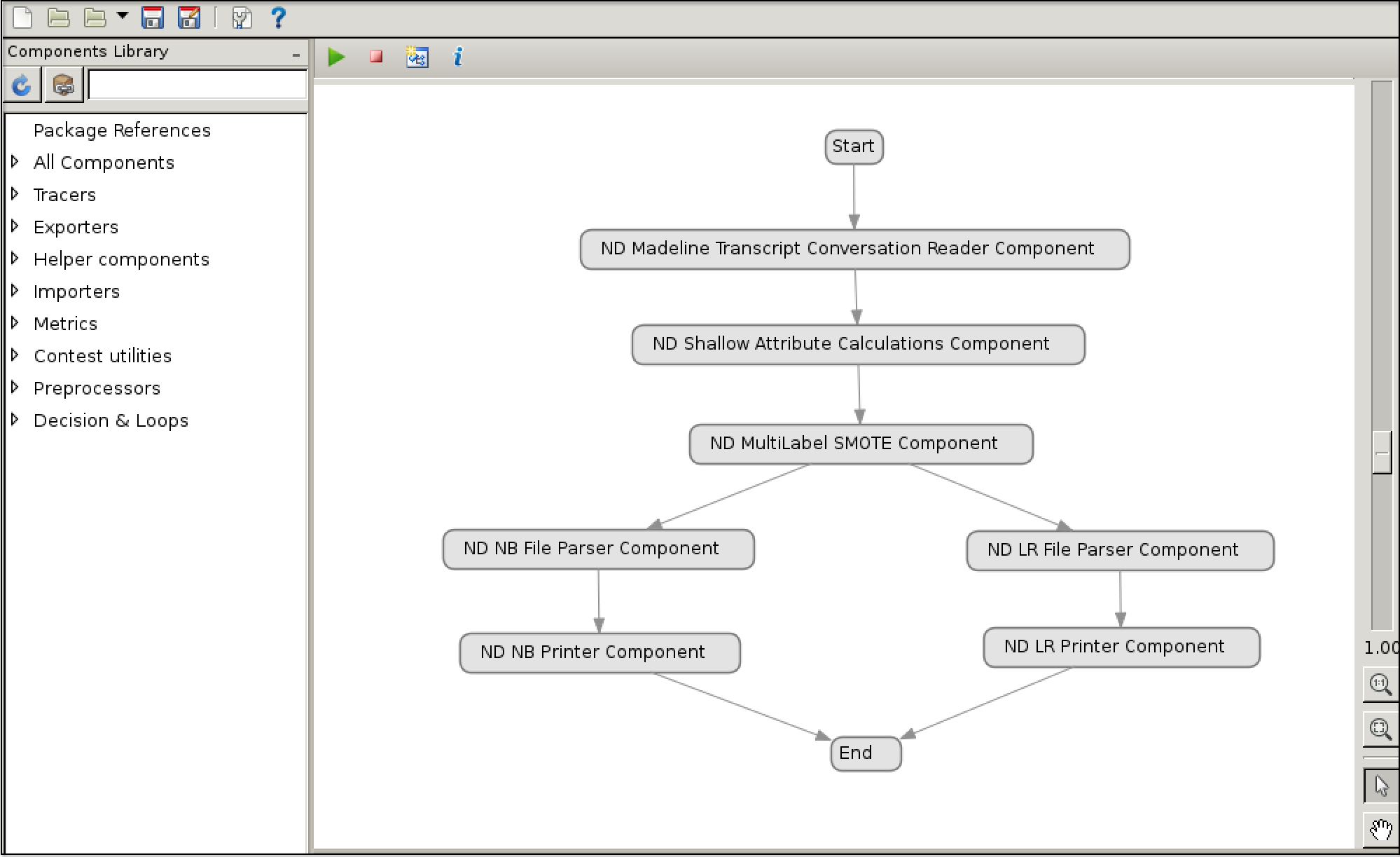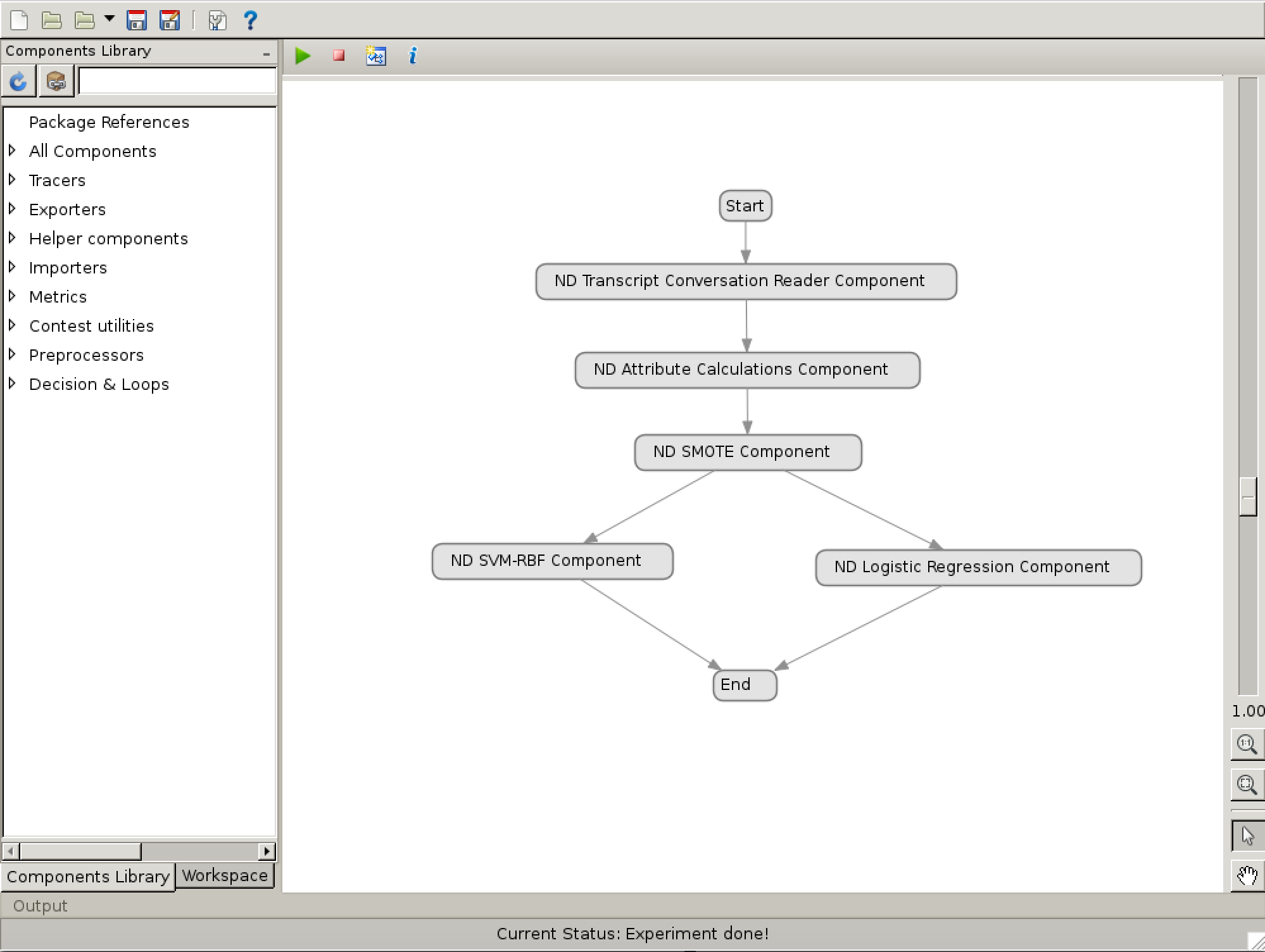Tracelab: Software Traceability Instrumentation
Project Description. TraceLab is a research-based framework that is intended to facilitate innovation, creativity, and reproducability of research projects. It is used as an experimental environment to enable researchers to reproduce state-of-the-art approaches. Furthermore, they are designed to improve software traceability solutions across various software engineering tasks. Such approaches can also be supported through visual modeling environment using a library of reusable and user-defined set of components. Overall, TraceLab provides easy access to recent techniques so that other researchers can modify and improve. For the state-of-the-art to advance, it is essential that current techniques be reproducable.
 TraceLab Project-1. User stories are
short descriptions of software features told from the user
perspective. In general, a user story consists of a role,
function, and rationale, which is expressed as: As a
<role>, I want to <function> so that I can <rationale>.
In the work published at ICSE'2017, we presented a technique
that aims to generate user stories from the recorded transcripts
of conversations between customers and developers. The input
to this approach is a plain transcript of customer and developer
conversations. The output to this approach is a list of 'speech
turns' in the conversation that include role, function, and
rationale data (a speech turn is a section of speech by one
member of the conversation, during which others are quiet).
The automatic generation of extractive summaries for user
stories is a new research area, and working implementations
are rare. This artifact is a set of reproducible TraceLab
components that implement our technique. The benefit to using
TraceLab components is that they are not only reusable
but relatively easy to modify, so that future researchers can
build improvements over our approach.
TraceLab Project-1. User stories are
short descriptions of software features told from the user
perspective. In general, a user story consists of a role,
function, and rationale, which is expressed as: As a
<role>, I want to <function> so that I can <rationale>.
In the work published at ICSE'2017, we presented a technique
that aims to generate user stories from the recorded transcripts
of conversations between customers and developers. The input
to this approach is a plain transcript of customer and developer
conversations. The output to this approach is a list of 'speech
turns' in the conversation that include role, function, and
rationale data (a speech turn is a section of speech by one
member of the conversation, during which others are quiet).
The automatic generation of extractive summaries for user
stories is a new research area, and working implementations
are rare. This artifact is a set of reproducible TraceLab
components that implement our technique. The benefit to using
TraceLab components is that they are not only reusable
but relatively easy to modify, so that future researchers can
build improvements over our approach.
 TraceLab Project-2. 'Speech Acts' are generally
expressed as verbal actions to achieve a specific task. A typical
expression of speech act is the following example: I've just
made some tea. As a result, the speech does more than
stating a fact — it has a consequence. This
example may imply to invite or to offer.
In recent work published at FSE'2018, we presented a multi-label
classification technique that aims at detecting speech act types
from written question and/or answer conversations between
programmers. In our approach, a 'virtual assistant' receives as an
input a message, and outputs the same message classified into one
of several categories. A virtual assistant is a system that emulates
the answers that programmers would give in a conversation.
Virtual assistants for software engineering have not
yet scratched the base to construct models of programmer
conversations, and working implementations of this kind are
necessary to push forward the software engineering research
community. We reproduce our technique by providing an artifact that
consists of a set of TraceLab components. TraceLab components are
beneficial for two reasons. These components are reusable and fairly
easy to modify and the researchers can extend them for further
improvements.
TraceLab Project-2. 'Speech Acts' are generally
expressed as verbal actions to achieve a specific task. A typical
expression of speech act is the following example: I've just
made some tea. As a result, the speech does more than
stating a fact — it has a consequence. This
example may imply to invite or to offer.
In recent work published at FSE'2018, we presented a multi-label
classification technique that aims at detecting speech act types
from written question and/or answer conversations between
programmers. In our approach, a 'virtual assistant' receives as an
input a message, and outputs the same message classified into one
of several categories. A virtual assistant is a system that emulates
the answers that programmers would give in a conversation.
Virtual assistants for software engineering have not
yet scratched the base to construct models of programmer
conversations, and working implementations of this kind are
necessary to push forward the software engineering research
community. We reproduce our technique by providing an artifact that
consists of a set of TraceLab components. TraceLab components are
beneficial for two reasons. These components are reusable and fairly
easy to modify and the researchers can extend them for further
improvements.